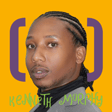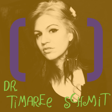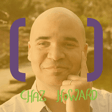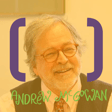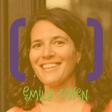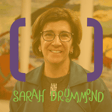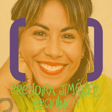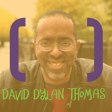
Martha Madrigal and Charles Tyson: Embrace Truth. Love Humanity. Get Queerer.
What does it look like to cultivate a political middle ground when hate is flying from all sides? How do queer folx maintain hope when everything feels awful? How can plant-based diets be more fun?
Martha Madrigal and Charles Tyson of Full Circle The Podcast are spilling ALL. THE. TEA.
CONTENT WARNING: discussions of politics, queerphobia, racism, bullying, suicidality, explicit language.
We talk about:
the practical bits of creating a bipartisan, actually diverse and inclusive bar
and then the spiritual and emotional process of closing that neighborhood bar
the development of their number one rated news commentary podcast
how to get along with your neighbor in a post-facts era,
the continuing challenges of living a hope-filled, joyful queer life in full acceptance of how awful the world can be,
and how to create a plant-based lifestyle you actually enjoy.
Find EVERYTHING about Full Circle the Podcast and subscribe to their weekly broadcast here at their Linktree: linktr.ee/fullcirclethepod
This program is produced in south west philadelphia, in the unceded neighborhood of the black bottom community and on the ancestral land of the Lenape nation, who remain here in the era of the fourth crow and fight for official recognition by the commonwealth of Pennsylvania to this day. You can find out more about the Lenape Nation of Pennsylvania and how you can support the revitalization of their culture by going to https://lenape-nation.org.
Visit this episode's sponsor, BVP Coffee, roasting high quality coffee that benefits HBCU students:
https://bvp.coffee/uncommongoodpod
Visit this episode's sponsor, Poi Dog, chef Kiki Aranita creating sauces inspired by Hawaiian Cuisine: https://poidogphilly.com
we chat to ordinary people doing uncommon good in service of our common humanity.
we are creating community that builds relationships across difference by inviting dialogue about the squishy and vulnerable bits of life.
(un)common good with pauli reese is an uncommon good media production, where we make spirituality accessible to everyone and put content on the internet to help people stop hating each other.
thanks for joining us on the journey of (un)common good!
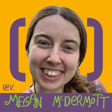
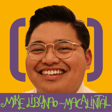

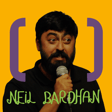
![BONUS: [moim] Gathering, David Rubenstein Atrium at Lincoln Center image](https://media.zencastr.com/cdn-cgi/image/width=112,quality=85/image-files/62b64321a33e0c0035b4bc2e/a5bd46bd-6072-4365-94bb-c1391a3e5105.jpeg)



